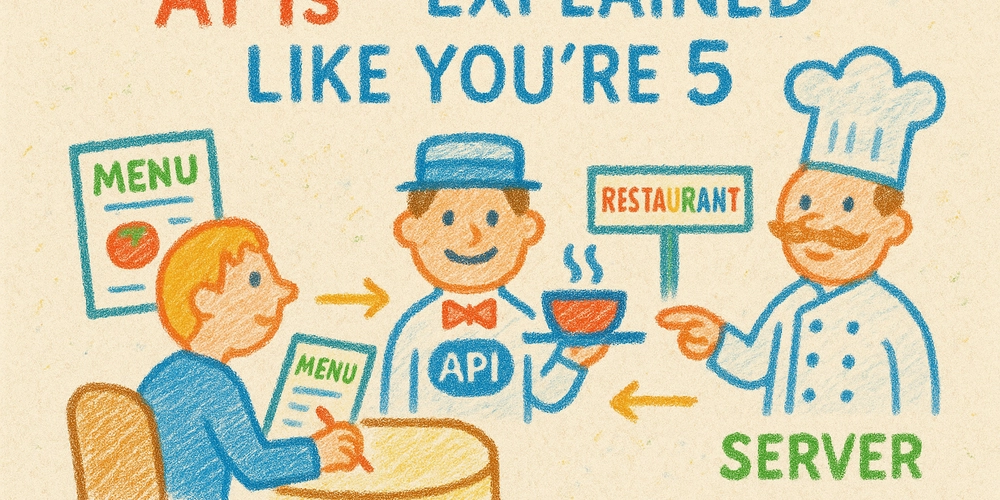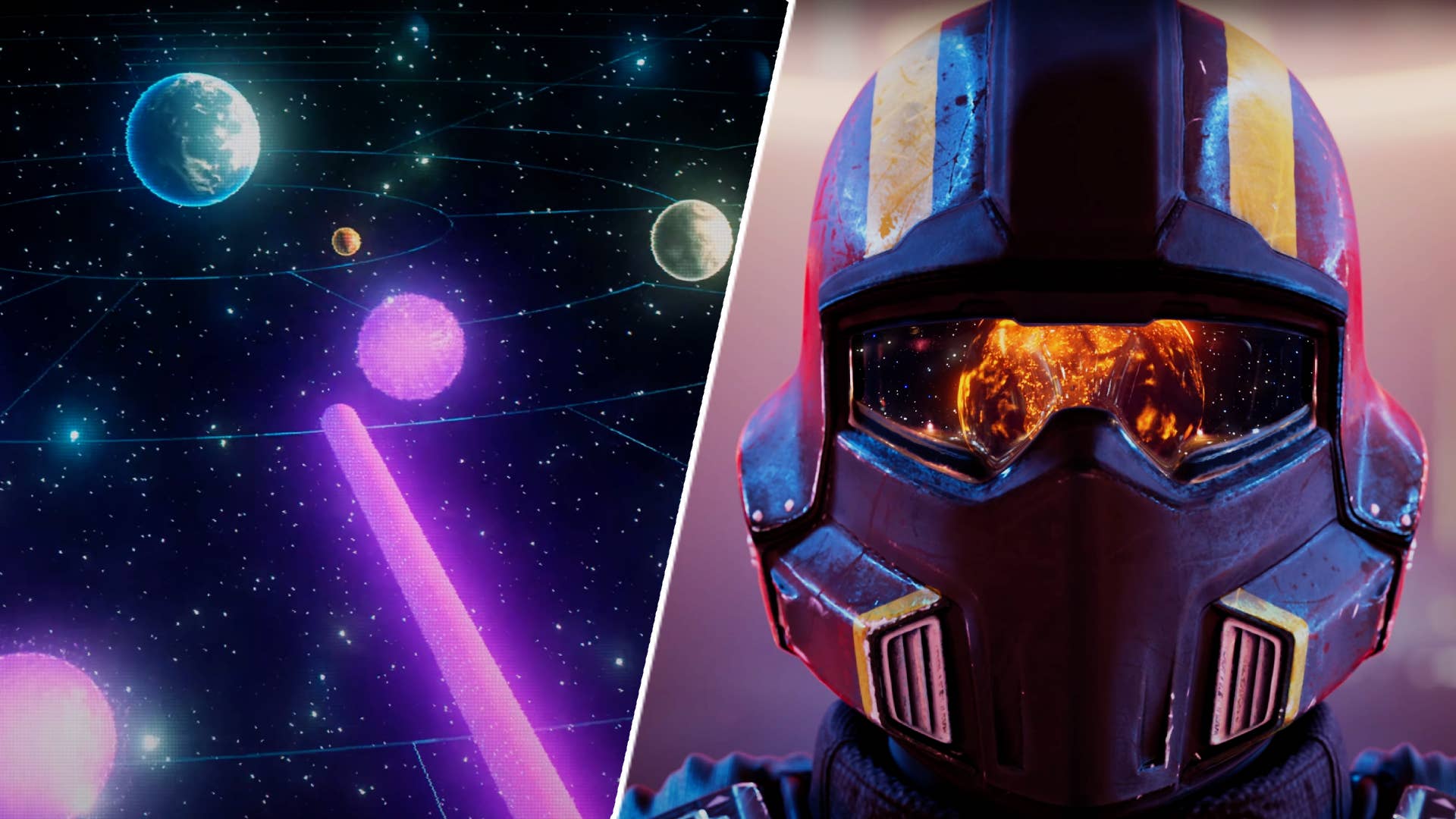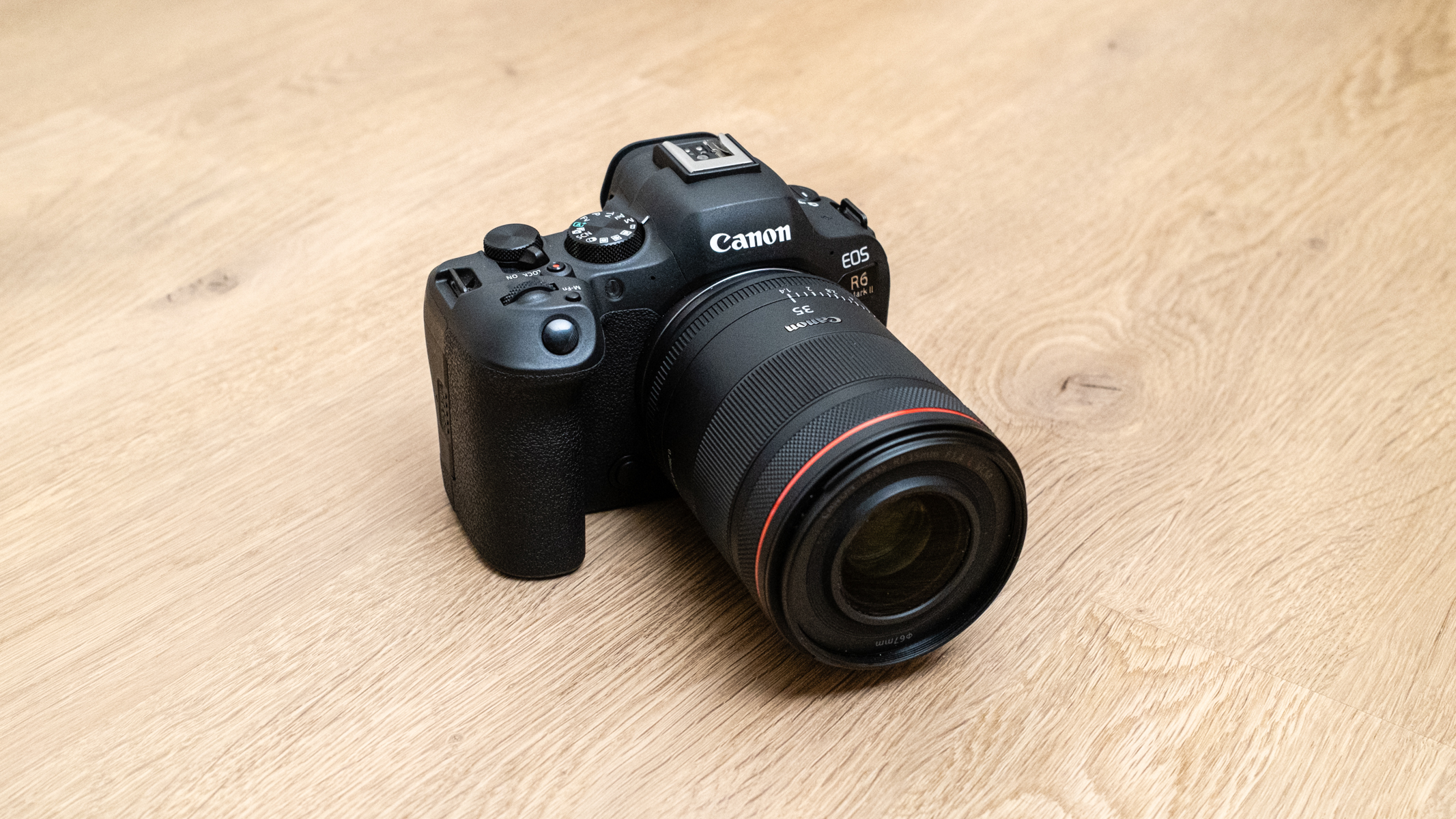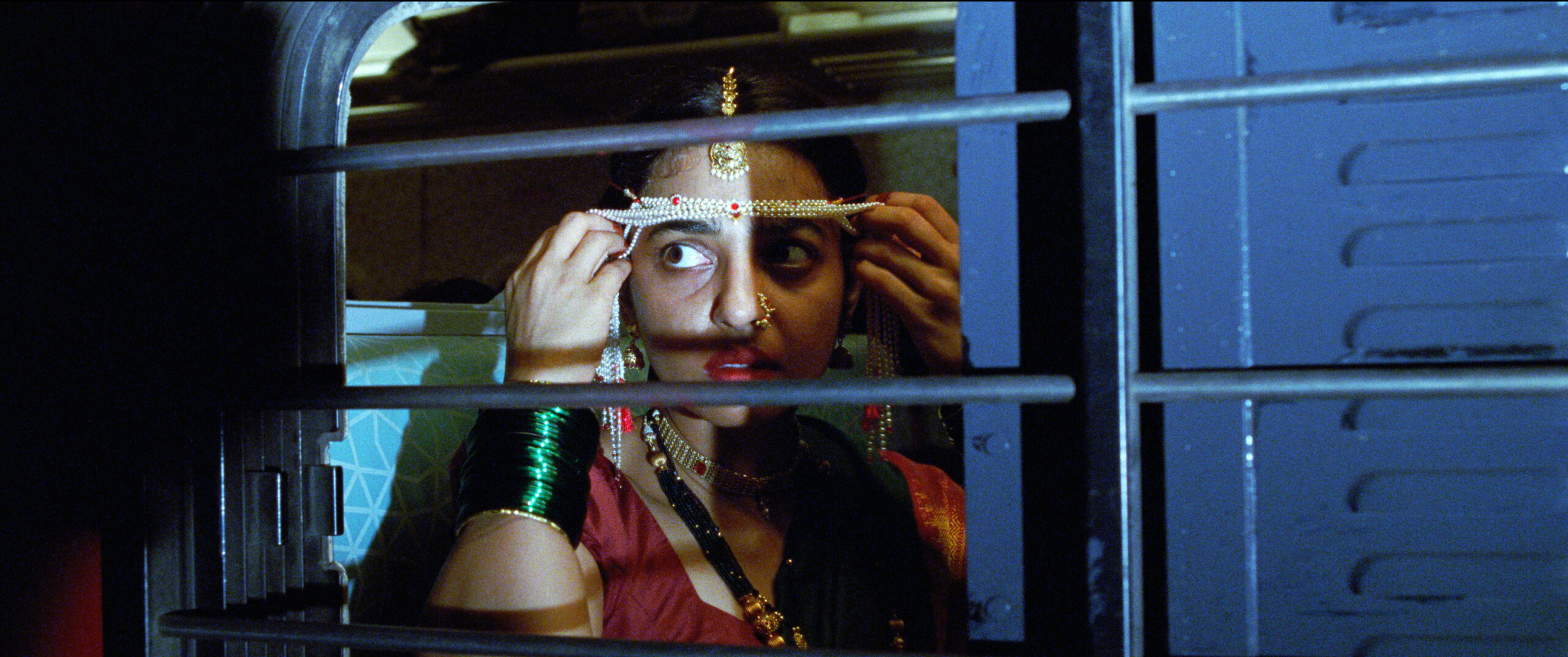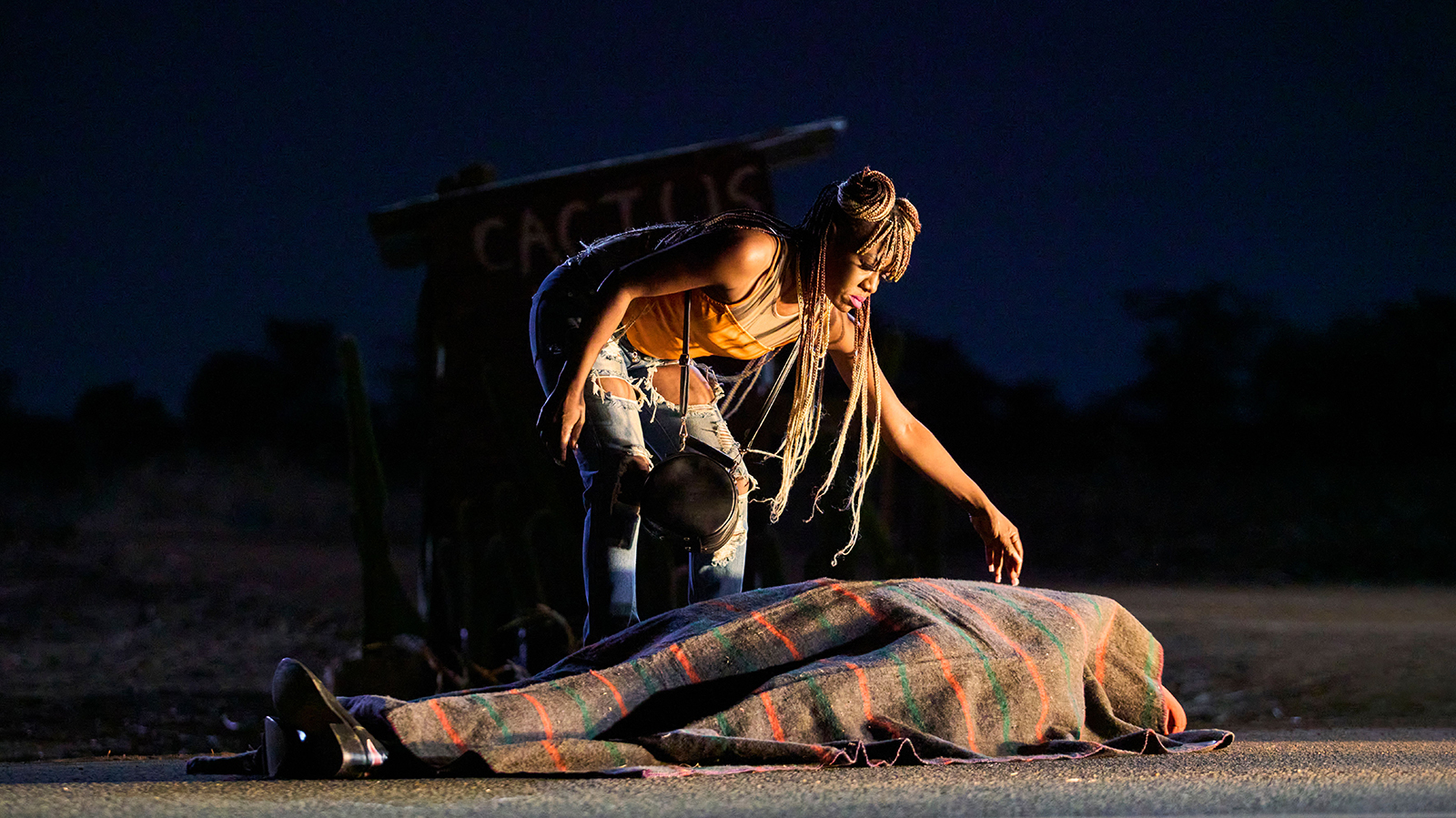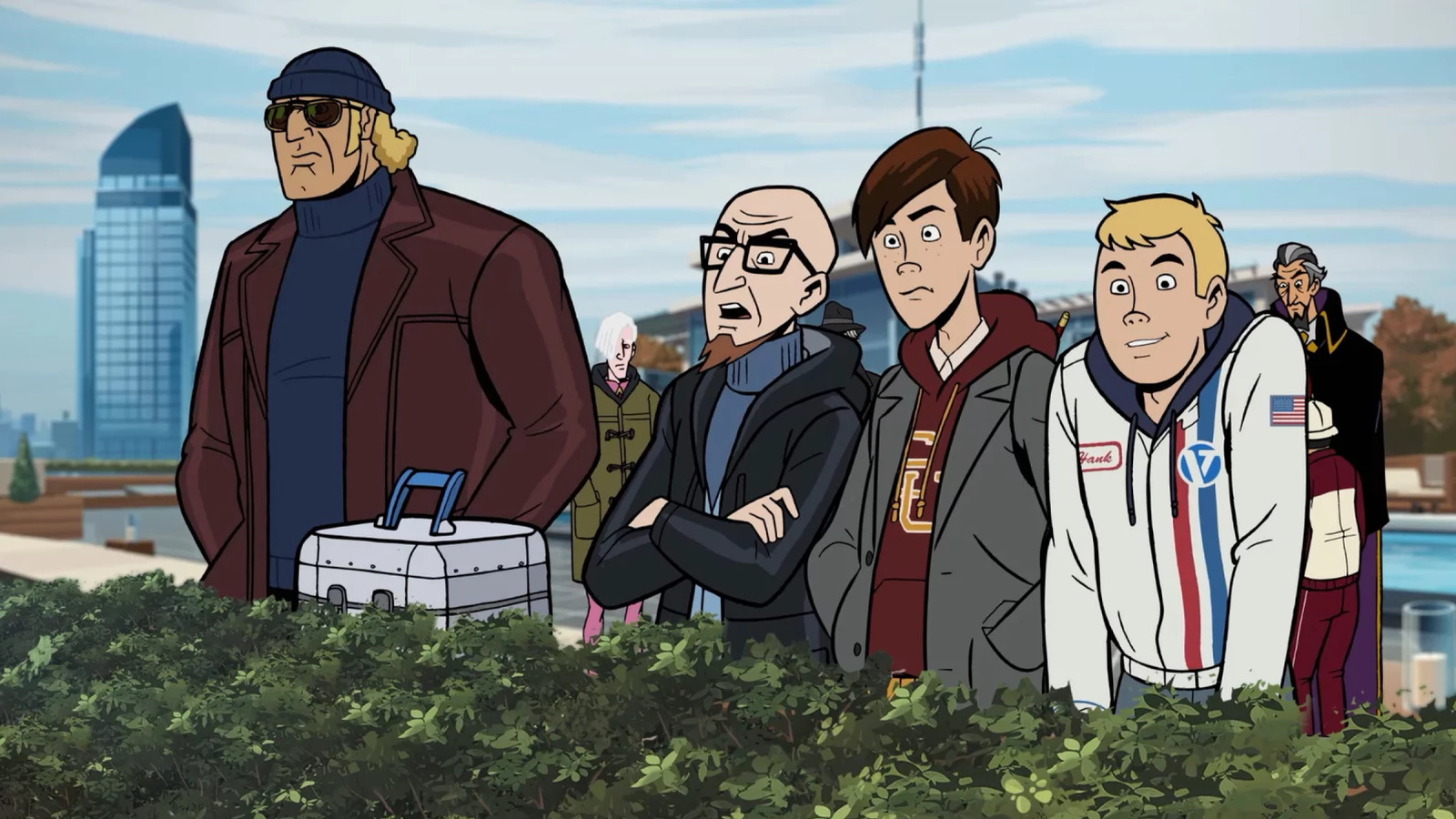What You Left in the Ditch
A classic case of what happens when your husband returns from war missing his lips, and you fall for a much-2-young bag boy at your local grocery store.
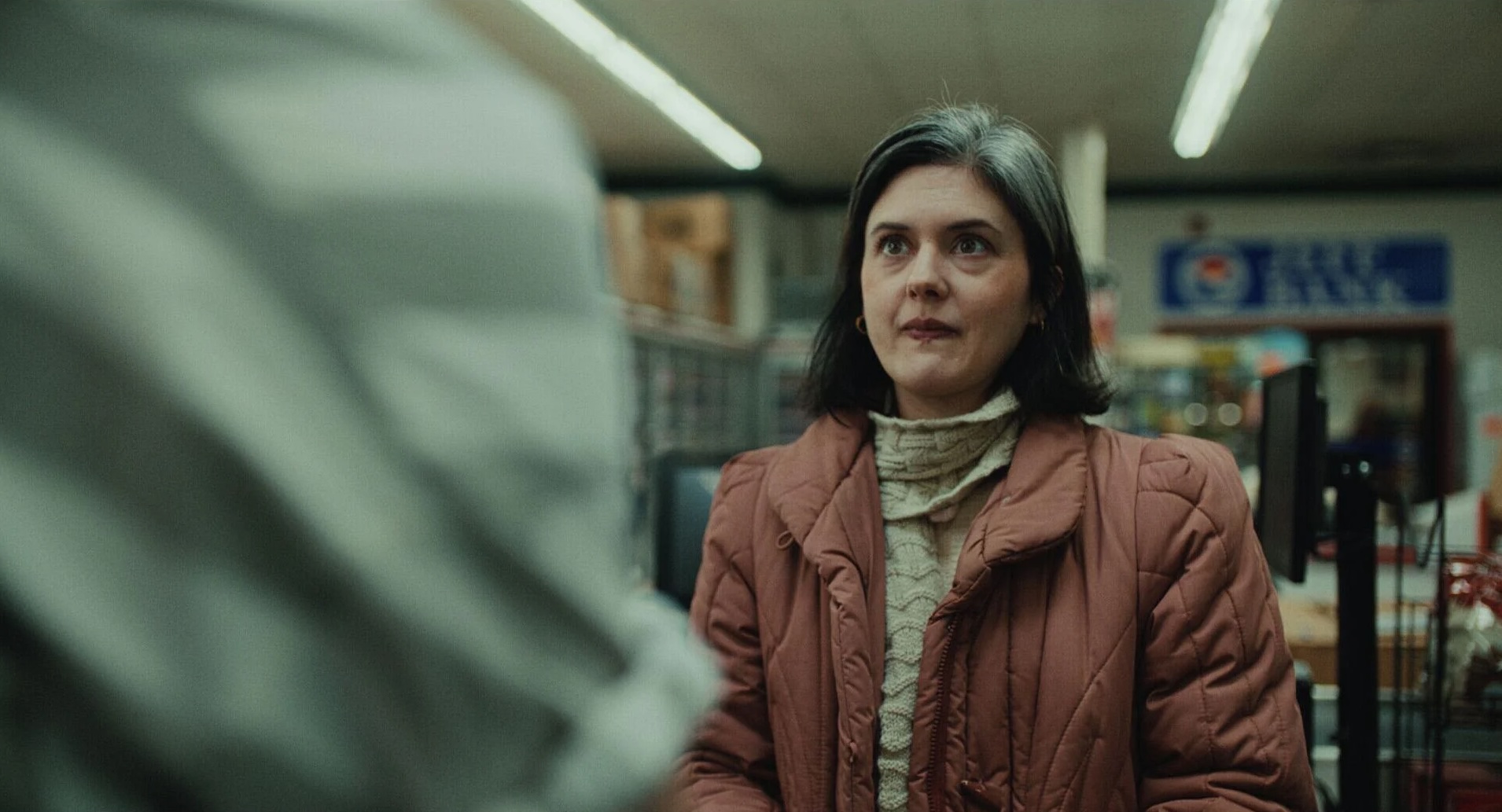

Speaking from experience, every long-term relationship hits rough patches. If you’re in it for the long run, you’re going to face your share of lows along with the highs. As we get older, we change – physically and mentally – and that can shake up how we connect with our partner. Sometimes we don’t see them the same way anymore or enjoy being around them like we once did. Tucker Bliss’ (Monster Factory) What You Left in the Ditch dives into those feelings of disconnection, taking it to the extreme with a story about a soldier coming home from war with facial scars.
What You Left in the Ditch opens with a striking scene: a car pulled over at night, a woman (Molly) doubled over in tears, lit by the headlights, while columns of smoke rise in the distance and the sky lights up with what looks like weapon fire. The sound of planes cuts through the air, followed by a radio broadcast mentioning “stealth bombers,” and then a title card tells us it’s set “sometime in the near-to-near-ish future.” Right away, Bliss drops us into a story where something clearly awful has happened to this woman (and this world), setting the tone for the rest of his 18-minute short.
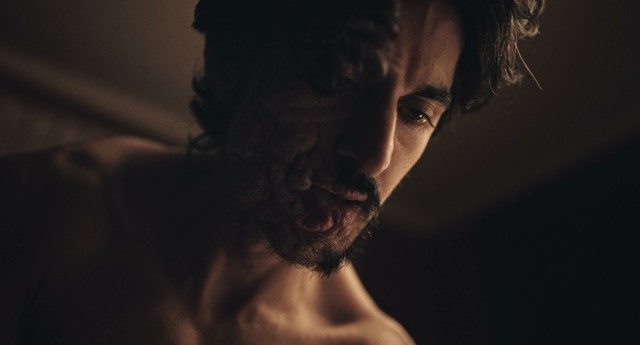
Gopal Divan stars as Stephen, the husband left physically scarred by the war.
We don’t have to wait long to learn what happened. As Molly cooks chicken in a pan – its shape hinting at what’s to come – her husband, Stephen, mentions an upcoming skin graft, his face partially hidden behind a mask. Then, just in case there’s any lingering doubt, a title card spells it out: Stephen has come back from war “without lips.” In just the first two minutes, What You Left in the Ditch lays out everything we need to know about Molly’s current reality. From there, the film shifts focus, using this setup to dig into themes of desire, detachment, and guilt, as Molly finds herself fixating on the young bag boy at the local grocery store – particularly his “gratuitous” lips.
As Molly becomes increasingly obsessed with the idea that she “wants lips now,” her attention toward the young grocery store clerk intensifies, eventually leading the two to go on a kind-of date – a quiet walk by the river. Despite the weighty themes at play – war, PTSD, infidelity – Bliss’ film keeps a surprisingly light and at times even playful tone. That balance makes the emotional moments hit even harder, especially the gentle, affecting final scene. Based on Aimee Bender’s short story of the same name, much of the film’s levity comes from the writing itself, which blends vulnerability with offbeat humour. Bliss leans into that tone, even lifting a line from Bender’s description of a sex scene – “it felt like they were in college and toying with desk items as sexual objects” – and using it as voiceover.
That lightness in tone is also perfectly offset by the darker, more grounded visuals. Whether it’s the dim glow of bedrooms, the cold neon lighting of the grocery store, or the constant grey skies, the aesthetic keeps the story tethered to reality even as it brushes up against more surreal moments. And that realism matters. What You Left in the Ditch may be a drama with comedic moments, but calling it a “dramedy” doesn’t quite do it justice. The humour doesn’t just lighten the load – it deepens the impact of the story and its emotional truths. It’s a film that has no right to be this entertaining and relatable given the subject matter, and while Bender’s original story sets the foundation, Bliss deserves real credit for translating it so thoughtfully to the screen.



















